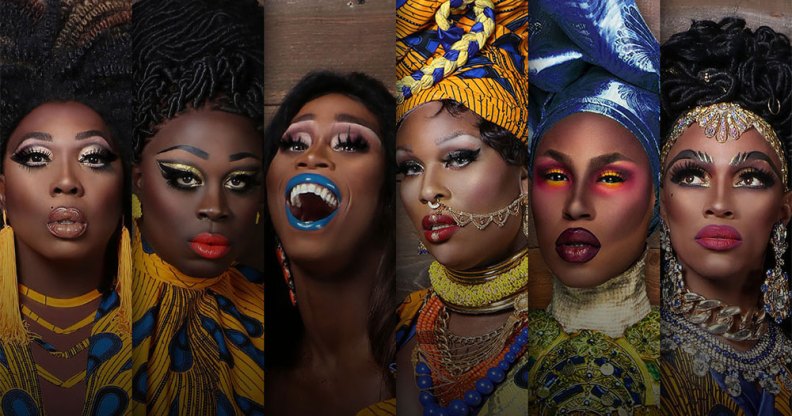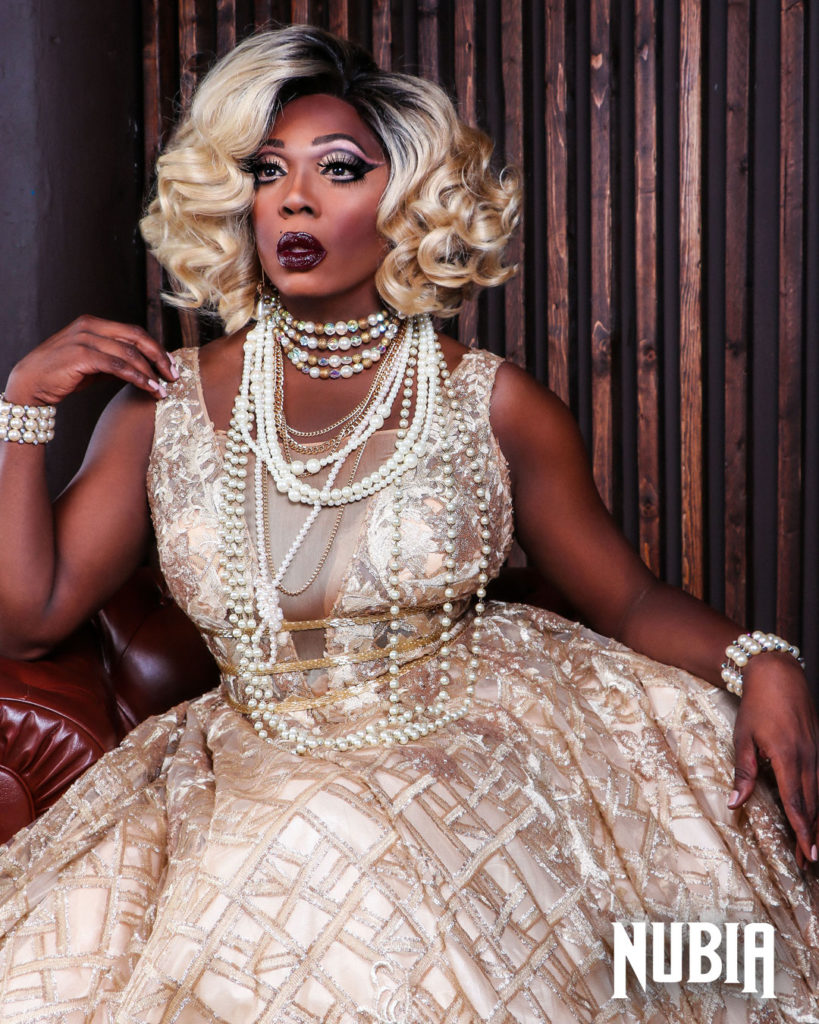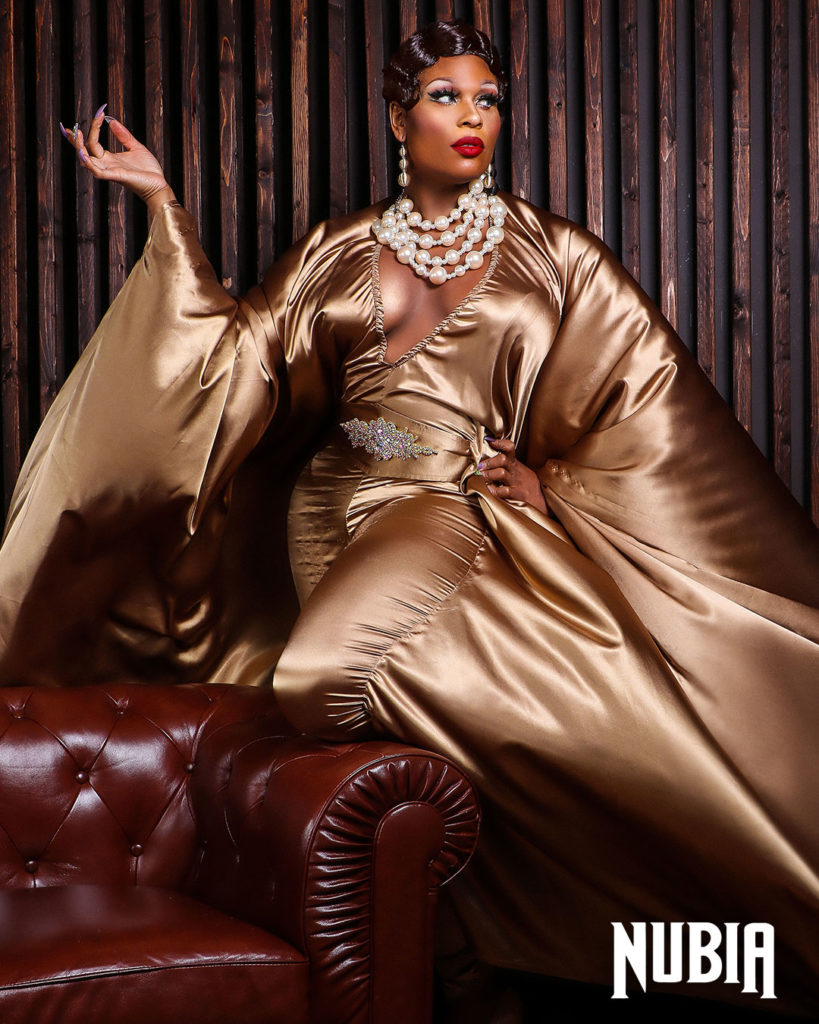Drag Race royalty Bebe Zahara Benet and Peppermint on the fandom’s problem with racism

Bebe Zahara Benet and Peppermint will be joined by Bob The Drag Queen, Monique Hart, Shea Couleé and The Vixen for Nubia. (James Michael Avance)
Drag Race legend Bebe Zahara Benet has assembled an all-star cast of queens for Nubia, a celebration of Black excellence in drag. PinkNews caught up with her and castmate Peppermint to talk representation, racism and queer Black joy.
The idea for Nubia came to Bebe because she was “tired of of seeing tours that weren’t representative of the diversity of talent within the LGBTQ community – or the world around us for that matter”.
“When you don’t have a seat at the table, you have to build your own,” the season one winner told PinkNews.
“For many of us, we’re constantly told what we can have and what we can do as Black or immigrant entertainers. We’ve been conditioned to diminish ourselves, our talents and our worth and to resign ourselves to the shadows of our white counterparts. And that time has passed.”
The Drag Race fandom has a problem with race.
The conditioning Bebe talks of is fuelled in part by the Drag Race fandom and its treatment of queens of colour. Many queens – Bebe and Peppermint included – have been candid in the past about experiencing racist abuse, derogatory slurs and even death threats from so-called “fans”.
“It’s unfortunate that a show that has catapulted so many queer entertainers of colour into the spotlight gets tarnished by these so-called fans, who tear down one another and entertainers because of their race,” says Bebe.

Bebe dreamed up Nubia because she was sick of being overlooked. (James Michael Avance)
She is quick to point out that the problem is not universal – it’s a small minority who seek to oppress the queens of colour, who for the most part enjoy the support of fans of all races.
“The fandom is massive and there are so many supportive people that enjoy the show and see themselves in the cast.
I love that about RuPaul’s Drag Race. It brings so many people together.
For Peppermint, any issues within the Drag Race fandom are symptomatic of society at large.
“I think many fans have the same issues with prejudice, racism and even misogyny that everyone else in the world has.
“These problems work their way into every aspect of our lives which is why it’s important to constantly work to combat them.”
Bebe explains that “every entertainer faces their own set of challenges – those of colour and otherwise”.

Peppermint was among the first queens to come onboard. (James Michael Avance)
“Many entertainers of colour feel we have to work twice as hard for half of the recognition. I’ve certainly felt that. Even during shows, we’re expected to kick, spin, jump, twist and dip until our wigs disintegrate to be seen as worthy or strong performers.”
This double standard extends to how the queens are expected to act, she explains.
“When we are confident or unbothered, we’re deemed cold or bitchy. We’re expected to balance the weight of the world on our shoulders without breaking a sweat as we navigate a tightrope.”
Nubia will celebrate ‘unadulterated Black excellence.’
The queens plan to fight this battle with visibility, beginning with Nubia. Bebe promises it will be a “unadulterated Black excellence in all of its glory and beauty”, representing Black queens “coming for everything we were told we couldn’t have”.
“The show is a powerful articulation of Black excellence, Black beauty, Black resilience and Black power.
“It’s a rollercoaster ride of fun, emotions, humour and untamed ferocity.”
Peppermint is particularly excited about the level of control Nubia will bring. Each of the queens involved – Bob the Drag Queen, Monique Heart, The Vixen and Shea Couleé – also take a part in producing the show, with Bebe explaining that future instalments will add queens “from the RuPaul’s Drag Race family, Dragula and beyond”.
In Peppermint’s experience, drag shows often seem to have an arbitrary Black girl quota.
The season nine runner-up says that celebrating Blackness is something she “always likes to do” – but the opportunity “to do it in a way that will be celebrated, especially together” doesn’t always present itself in a white-dominated world.
For some reason it seems as though the people who are in charge of choosing which girls will be hired avoid having too many Black queens at once.
“It’s as if the quota is so low that they only need to have one in each group. It’s great to be hired or thought of but sometimes being that one queen doesn’t leave much room for freedom of expression.”
With Nubia, the queens plan to right these wrongs while challenging both themselves and their audience’s expectations.
“I hope that people experience Nubia and start thinking critically about qualifying the success of queens of colour and really get into the diverse talents we bring to the industry,” Bebe says. “Because we’re not going anywhere.”
Nubia will debut at the Roulette Intermedium in Brooklyn, New York on March 5 and 6. Tickets are still available.

